Introduction

Principles of the African Society
- Sovereignty.
- Territorial integrity.
- Sanctity of existing borders.
- International humanitarian intervention.
- Regionalism.
- Federalism (Martin 246).
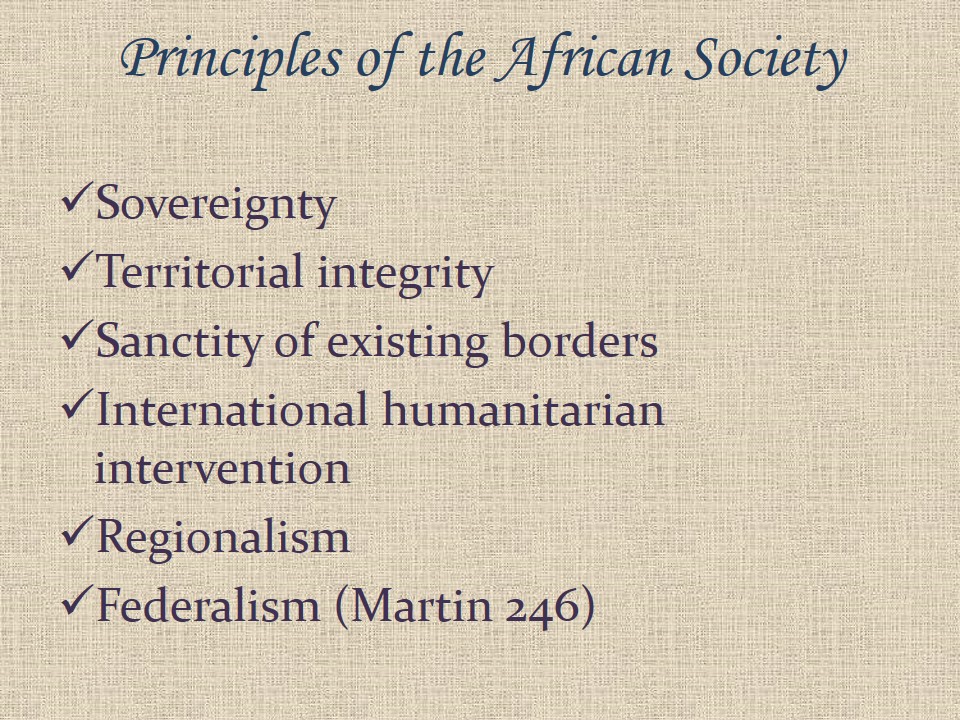
Influence of technological innovations on African state
- Technological innovations are crucial for American society.
- One of the main spheres of technological innovation use is agriculture.
- The increased use of technological innovation in agriculture may improve the effectiveness of the industry in general (Sanginga, Waters-Bayer and Kaaria 77).
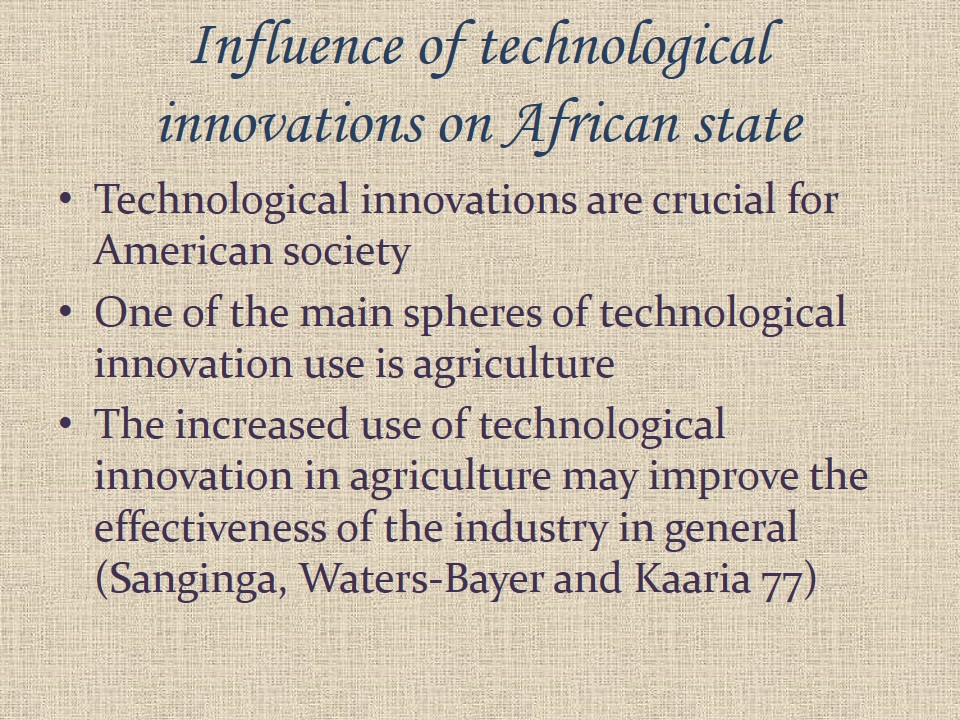
Afro-pessimists
- These people think that Africa stands on the edge of the end of its existing.
- They think that it is high time for the country to collapse with the aim to start everything from the very beginning.
- Reconfiguration and reconstruction of the country will be possible only after its collapse (Francis 56).
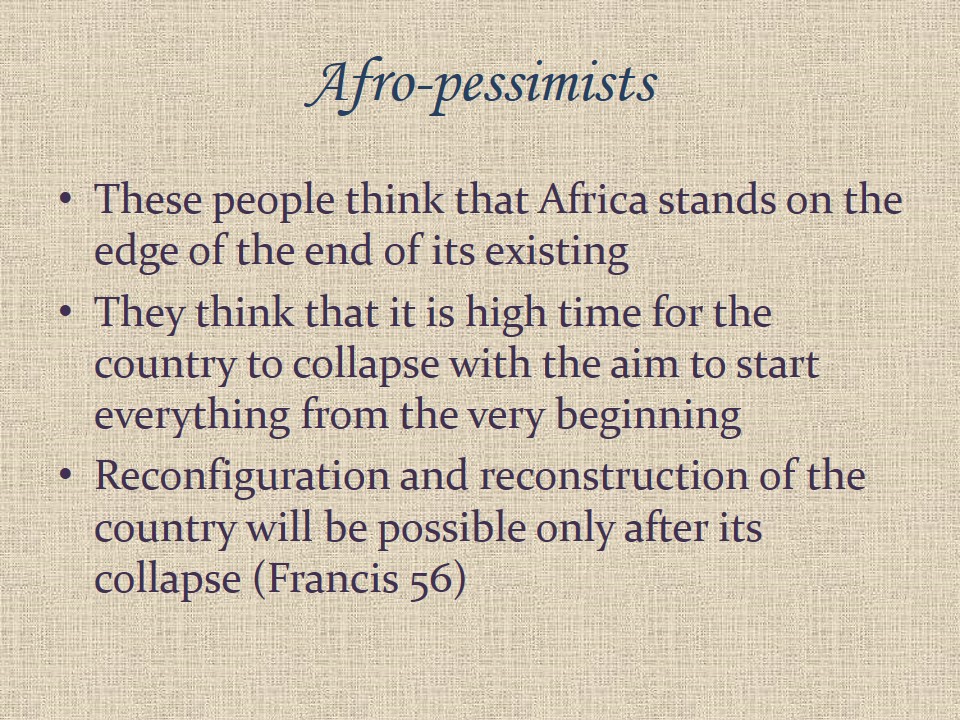
Afro-optimists
- These people see the future of Africa.
- They understand that the country is developing that there is hope for better future.
- They saw and perceived the wave of democratization in 1990s as the additional sign that they are going the right way.
- These people understand that the way to happy life is difficult but they are sure that they are going the right direction and will succeed in the nearest future (Ben-Rafael and Sternberg 199).
- Afro-optimists also claim that Africa is on the way to democratization now, removing dictators in one African country after another (Onwudiwe and Ibelema 166).
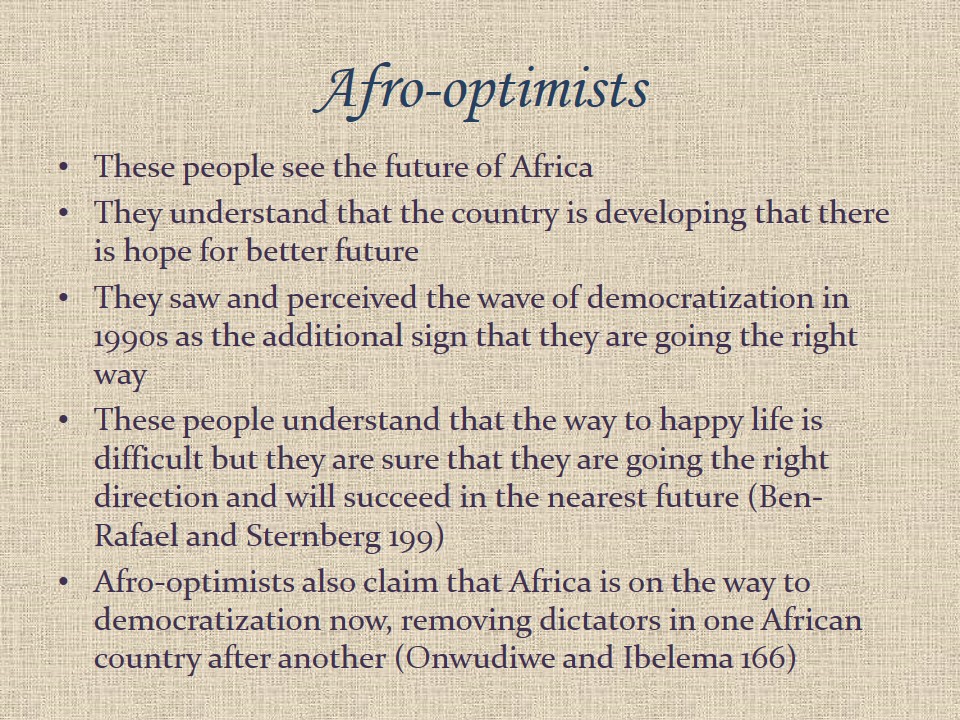
Threats to post colonial Africa
- Military threats.
- The low level of the development in African countries make it possible for the foreign country to establish its own rules there.
- There is the threat to suffer from domination of the other country.
- The absence of security in the relations with the other countries in the world (Triulzi and Ercolessi 239).

Africa as a single political and economical unit
- High inflation rate on the whole territory of the region.
- Political pluralism and political openness.
- Agricultural sector is more developed on the territory of the region.
- Political influence from inside.
- Political turmoil and frequent change of political regimes.
- Still, stable political environment that leads to the democratization of the whole African society (Allen and Gandiya 36).
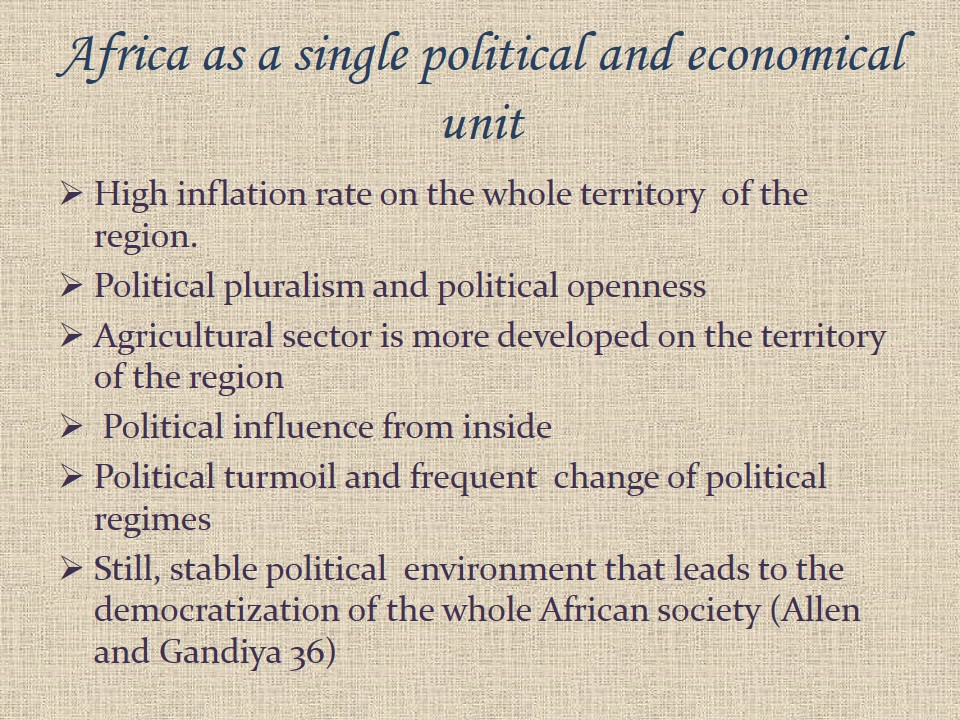
Conclusion
In conclusion is should be mentioned that African region is still developing and there are a number of problems that should be decided. At the same time there is always hope for better future. The Presentation was completed on the topics of African principles, on the technological innovations and how they influence the African industries, the points of view Afro-pessimists and Afro-optimists were checked, threats to post colonial Africa were considered as well as the common features that make Africa the united region.
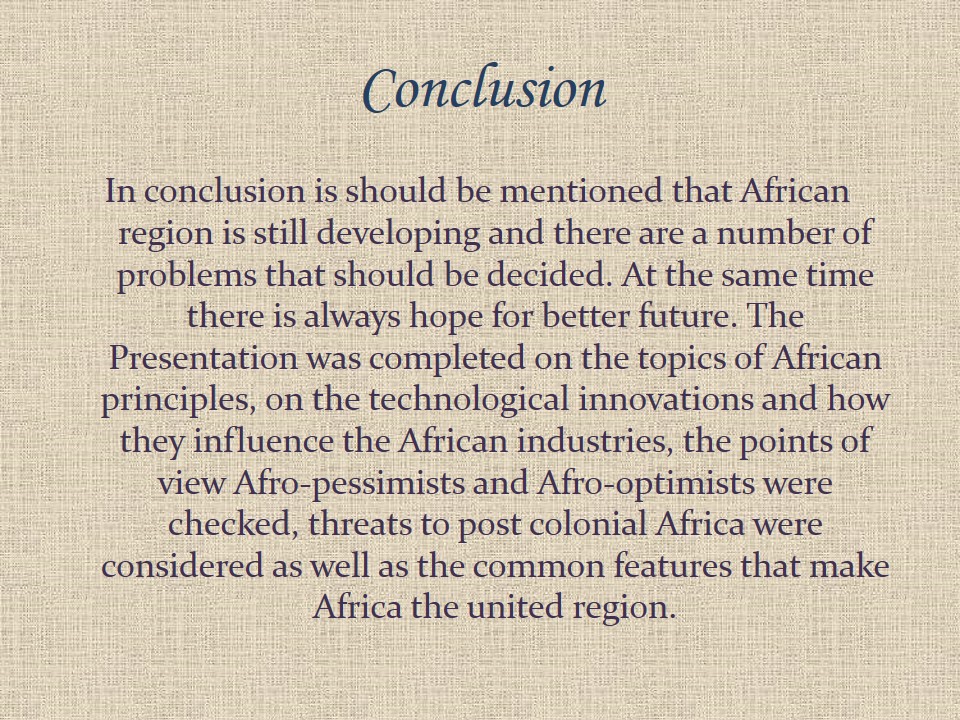
Reference List
Martin, Guy. Africa in world politics: a Pan-African perspective. Trenton, NJ: Africa World Press, 2002. Print.
Sanginga, P. C., Waters-Bayer, Ann and Susan Kaaria. Innovation Africa: enriching farmers’ livelihoods. Earthscan, 2009. Print.
Francis, David J. Uniting Africa: building regional peace and security systems. Farnham: Ashgate Publishing, Ltd., 2006. Print.
Ben-Rafael, Eliezer and Yitzhak Sternberg. Identity, Culture and Globalization. Leiden: BRILL, 2002. Print.
Onwudiwe, Ebere and Minabere Ibelema. Afro-optimism: perspectives on Africa’s advances. Abingdon: Greenwood Publishing Group, 2003. Print.
Triulzi, Alessandro and Maria Cristina Ercolessi. State, power, and new political actors in postcolonial Africa. Milan: Feltrinelli Editore, 2004. Print.
Allen, David E. and F. Gandiya. Assessing exchange rate hypothesis within Southern Africa. Farnham: Ashgate Publishing, Ltd., 2004. Print.